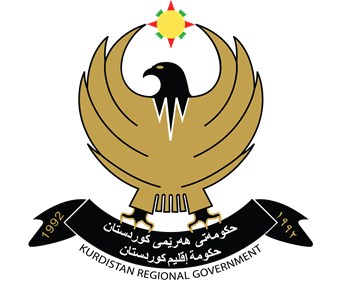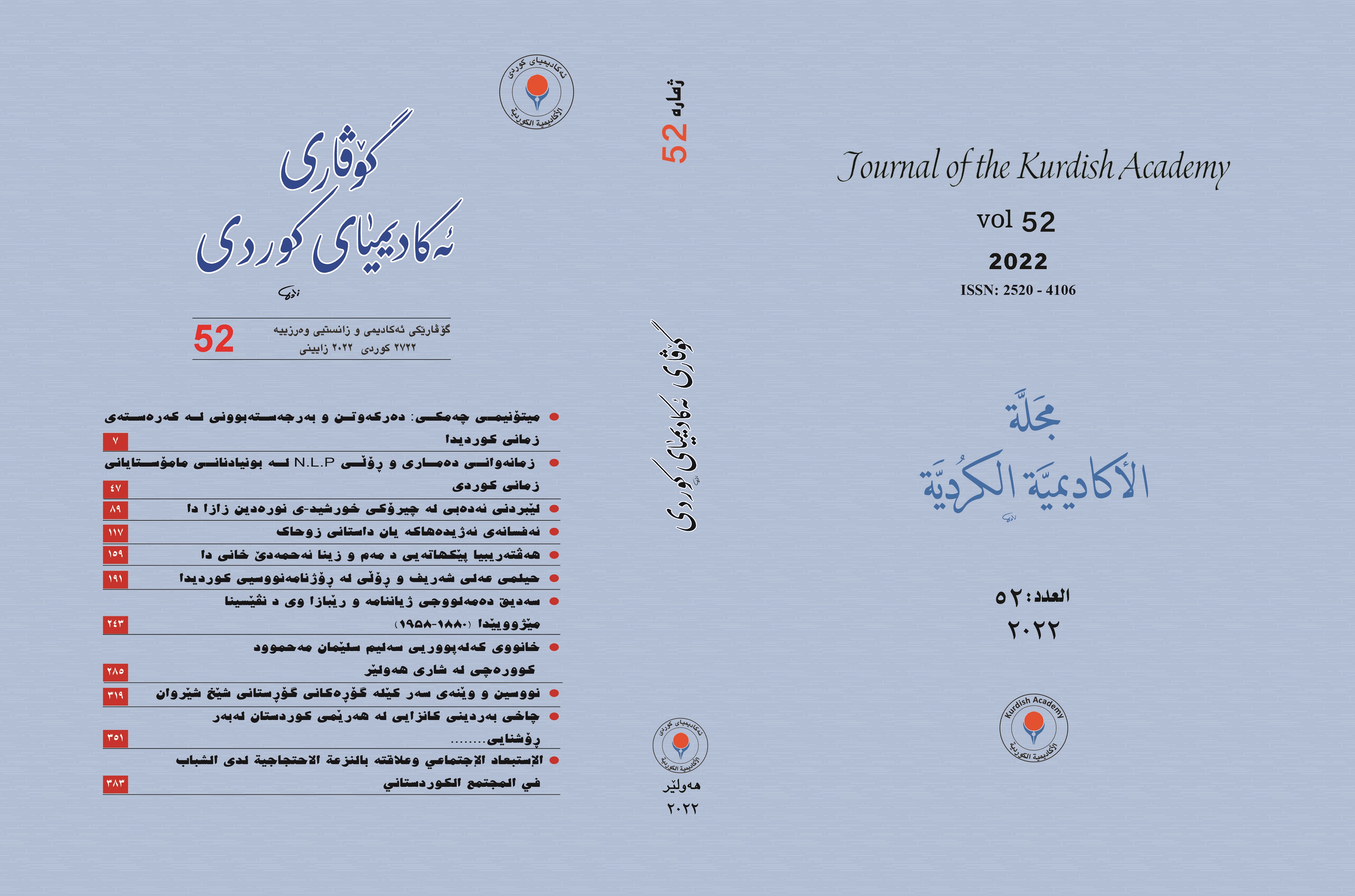میتۆنیمی چەمکی: دەرکەوتن و بەرجەستەبوونی لە کەرەستەی زمانی کوردیدا
DOI:
https://doi.org/10.56422/ka..52.85Keywords:
metonymy, metaphor, cognitive linguistics, metonymy theory, KurdishAbstract
This study explores metonyms as a conceptual phenomenon within the framework of cognitive linguistics. As is known, metonyms have been studied since antiquity, yet this study brings it under a cognitively oriented investigation highlighting some of its major aspects such as its properties, its difference with synecdoche, its distinction with metaphor, its types as well as a brief summary of Kövesces and Radden’s theory of metonymy (1998) which is currently seen as the most significant theory accounting for conceptual metonymy.
The study has been divided into seven sections. The prelude introduces the purpose of the study, the research questions, the methodology and the data of the study while the first section sheds light on the definition and the significance of metonymy. Moreover, the second and the third section are devoted to a survey of conceptual metonymy within the traditional school of linguistics and cognitive linguistics respectively. Section four is designed to distinguish between conceptual metaphor and conceptual metonymy within the cognitive framework. The fifth and sixth sections are mainly intended to deal with the types of conceptual metonymy and some different metonymical phenomena and the last section presents a brief overview of Kövesces and Radden’s theory of metonymy in terms of conceptual metonymy types and their manifestations in Kurdish language.





